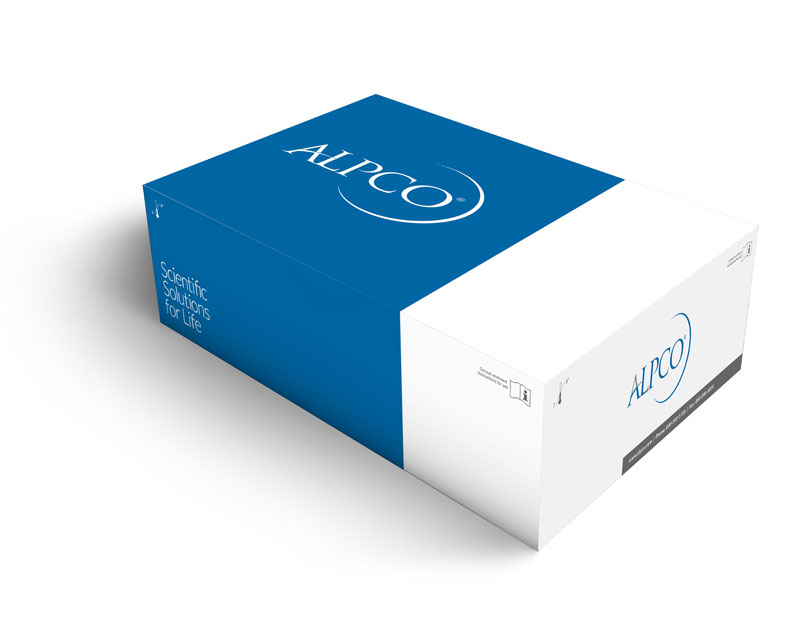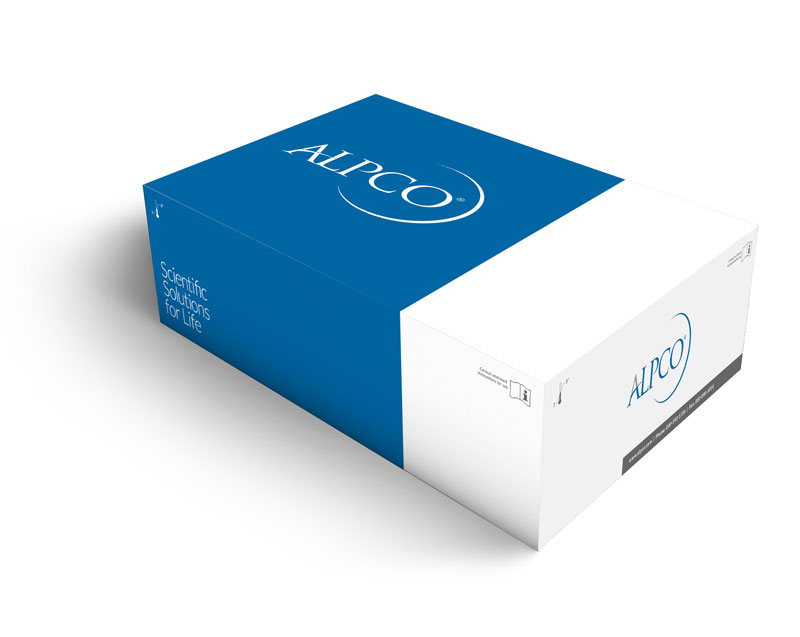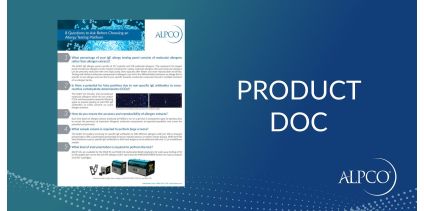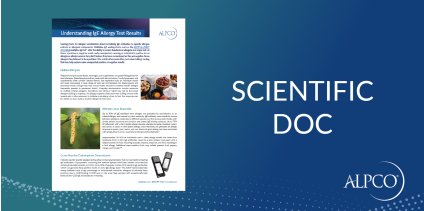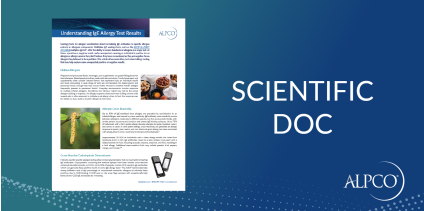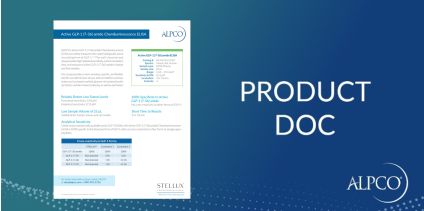NT-proBNP (1-76) ELISA
The NT-proBNP (1-76) ELISA is an enzyme immunoassay for the quantitative determination NT-proBNP (1-76) in human serum.
- Highly characterized to measure changes in levels of NT-proBNP
- Relevant BNP fragment measurement for translational research
- Simplified workflow
- Includes standards and controls
- Automated protocols available
Research Use Only. Not for Use in Diagnostic Procedures.
Brain Natriuretic Peptide (BNP) is part of the Natriuretic Peptides family and is a product the NPPB gene found on human chromosome 1. The ventricles secrete BNP which results in decreased blood volume and pressure1. Together with ANP, and BNP contributes to the regulation of cardiovascular and renal homeostasis and blood pressure control by influencing the Renin-Angiotensin II-Aldosterone system (RAAS)1,2.
The prohormone form of BNP undergoes many cleavages to generate the biologically active BNP which results in fragments of various amino acid lengths including the NT-proBNP (1-76) fragment. Measuring the NT-proBNP (1-76) fragments of BNP provides a more accurate concentrations of the BNP in samples3,4,5 because it is more stable, has a longer half-live, and circulates at higher concentrations compared to the C-terminal biologically active BNP hormone6,7.
Research has shown that BNP is important to cardiovascular disease more recently to kidney disease and diabetes.
References:
- Volpe (2014). Natriuretic peptides and cardio-renal disease. International Journal of Cardiology 176 (2014) 630–639. doi:10.1016/j.ijcard.2014.08.032
- Federico (2010). Natriuretic Peptide System and Cardiovascular Disease. Heart Views. 2010 Mar-May; 11(1): 10–15. PMCID: PMC2964706.
- Vesely DL. (2002) Atrial natriuretic peptide prohormone gene expression: hormones and diseases that upregulate its expression. IUBMB Life 2002; 53:153–9. PMID: 12102171
- Clerico A, et al (2011). Thirty years of the heart as an endocrine organ: physiological role and clinical utility of cardiac natriuretic hormones. Am J Physiol Heart Circ Physiol; 301: H12-H20. PMID: 21551272
- Iqbal et al (2012). Is the New Natriuretic Peptide Better Than the Old Ones For Diagnosing CHF. American College of Cardiology.
- Yandle et al (1986) Metabolic clearance rate and plasma half life of alpha-human atrial natriuretic peptide in man. Life Sci. 38, 1827–1833. PMID: 2939312
- Arjamaa et al (1996). Atrial plasma ANP and NH2-terminal proANP during right atrial pressure increase in humans. Acta Physiol Scand. 1996 Aug;157(4):481-5. PMID: 8869731

